Bengaluru Express
Bengaluru, April 29:
GUEST COLUMN: Dr N Prabhudev
Did Jawaharlal Nehru ever say “I am English by education, Muslim by culture and Hindu by accident”? Yes, it has been attributed to Nehru but, may be a fake news!
The Hindu religion is an assembly of religious, philosophical and cultural ideas and practices that originated from time immemorial in the country of India. It is based on the collective wisdom and inspiration of great seers and sages from the very dawn of Indian civilization. What we have is a faith that allows each believer to reach out to his notion of divinity. Hinduism is the world’s oldest religion!
We believe in karma and Dharma – the law of cause and effect by which each individual creates his own destiny by his thoughts, words and deeds. We see the divine in relationships—child, mother, father, friend, or guardian—making the connection to God deeply personal. Most of the beliefs and practices of Hinduism are based on the teachings of the Vedas, Āgamas, Upanişads and several books written based on these texts.
We believe that each person is intrinsically divine and the purpose of life is to seek and realize the divinity within all of us- Aham Brahmosmi!
Vasudhaiva Kutumbakam – The ‘World is One Family’- encourages to act selflessly, promoting the welfare of all and offers an enduring message of hope, unity, and peace. It encourages individuals to transcend their ego and embrace a broader, more inclusive perspective. This timeless wisdom, holds profound relevance today, tomorrow and for all times to come -Humanity is inherently connected, sharing the same planet and destiny.
From God, as a Hindu I received nothing I wanted. But I received everything I needed.
• I asked for strength and God gave me difficulties to make me strong.
• I asked for wisdom and God gave me problems to solve.
• I asked for prosperity and God gave me brain and brawn to work.
• I asked for courage and God gave me dangers to overcome.
• I asked for patience and God placed me in situations where I was forced to wait.
• I asked for love and God gave me people in trouble to help.
• I asked for favours and God gave me opportunities
In Hinduism you cannot forgive others for your mistakes – atonement and forgiveness are the best means to self-purification. Go on your knees and pray! Prayer is talking to god, it is not bargaining with god! It strengthens your relationship with god! In meditation you listen to god and experience his love!
Vedas, puranas, Upanishads, Bhagavad Gita and the likes are the guiding doctrines for our society. These texts are a collective wisdom of many sages over centuries. The accumulated treasury of spiritual laws discovered by different persons in different times” constitutes the sacred Hindu texts.
A Christian is one who believes in Jesus Christ! A Muslim believes in the Allah and the prophet! A Sikh believes in Gurunanak and in Gurugranth sahib! There is no Hindu equivalent of any of these beliefs! There are no binding requirements – not even belief in God!
When I am in distress I believe the world is not a safe place. Many of us lose faith in the God after witnessing a tragedy- a distrust and a strained meaning system. I have a difficult time finding meaning and purpose in suffering and its magnitude. To one who has faith, no explanation is necessary. To one without faith, no explanation is possible! Many of us including me are angry at the God Who Isn’t there when we need him!
Hinduism permits you to be frustrated with god! A Hindu is intricately linked with the concepts of karma and dharma – dictate ethical conduct but also delineate the consequences of individual actions – wherein every action is understood to create a ripple effect-path to the heaven or the hell!
Engaging in charitable acts and performing good deeds are fundamental tenets of Hinduism! Seeking forgiveness from God and others represents a profound act of humility and repentance within Hinduism, underscoring the significance of divine mercy and compassion in the pursuit of spiritual enlightenment.
God made us like him. Religions have made him look like us – a souped-up version of ourselves. The notions of good and bad are meaningless in a Godless world.
Hinduism is a Santana dharma – “immemorial way of right living”. Hinduism is the oldest of all established belief systems, with origins that date back more than 5000 years. There is no known founder of Hinduism. The Hindu faith has numerous schools of thought, no organizational hierarchy or structure but the concept of karma and dharma, the social and ethical system by which an individual organizes his or her life.
Sanatana Dharma encompasses a set of eternal and universal ethical and moral principles of virtuous and true living and attaches great importance to truth, right conduct, love, peace and non-violence. There is no caste system in sanathana Dharma! Vedas contain no word that can be considered a synonym for ‘caste’. It was incorporated by people who were selfish and wanted their supremacy hoisted by belittling others!
Sanatana Dharma, at its core, does not endorse the caste-based formulations as is seen today. Its teachings promote harmony, dignity, and equal opportunities for all. An important principle in the Hindu thought is the law of karma. It is the law of cause and effect in which each and every action has a reaction, generating conditions to be experienced within this lifetime or the next – Every good thought, word or deed begets a similar reaction which affects our next lives and every unkind thought or evil deed comes back to harm us in this life or the next.

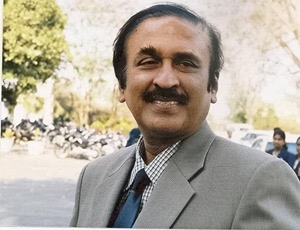
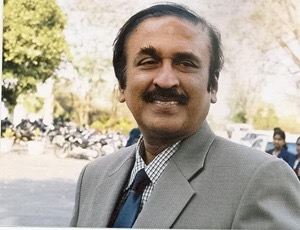
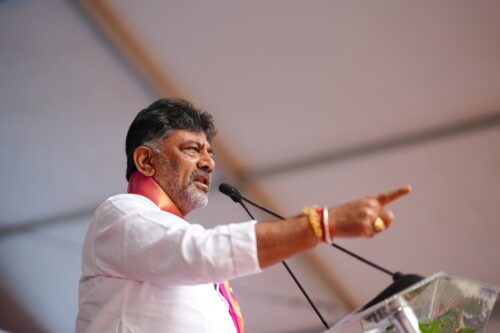
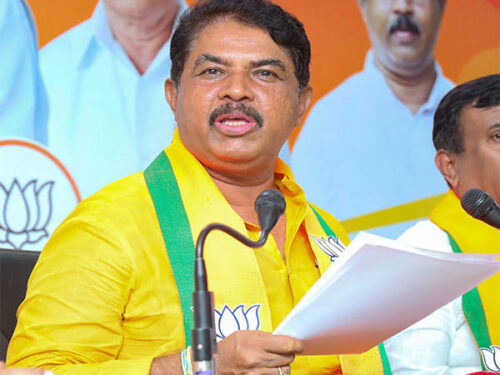
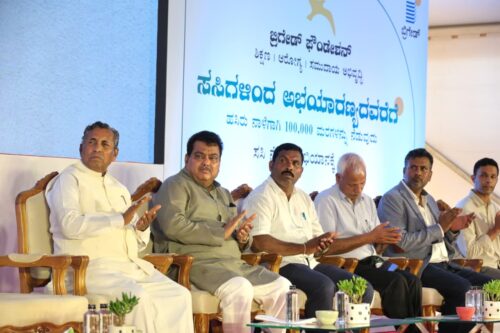
More Stories
Time’s up: It’s No Longer a Man’s World!
Let MP B Y Raghavendra not join the list of hit-and-run leaders: DCM DK ShivakumarBurst crackers responsibly
Caste Survey in Name: Threats, Rowdyism from Congress Government: Opposition Leader R. Ashoka’s Outrage